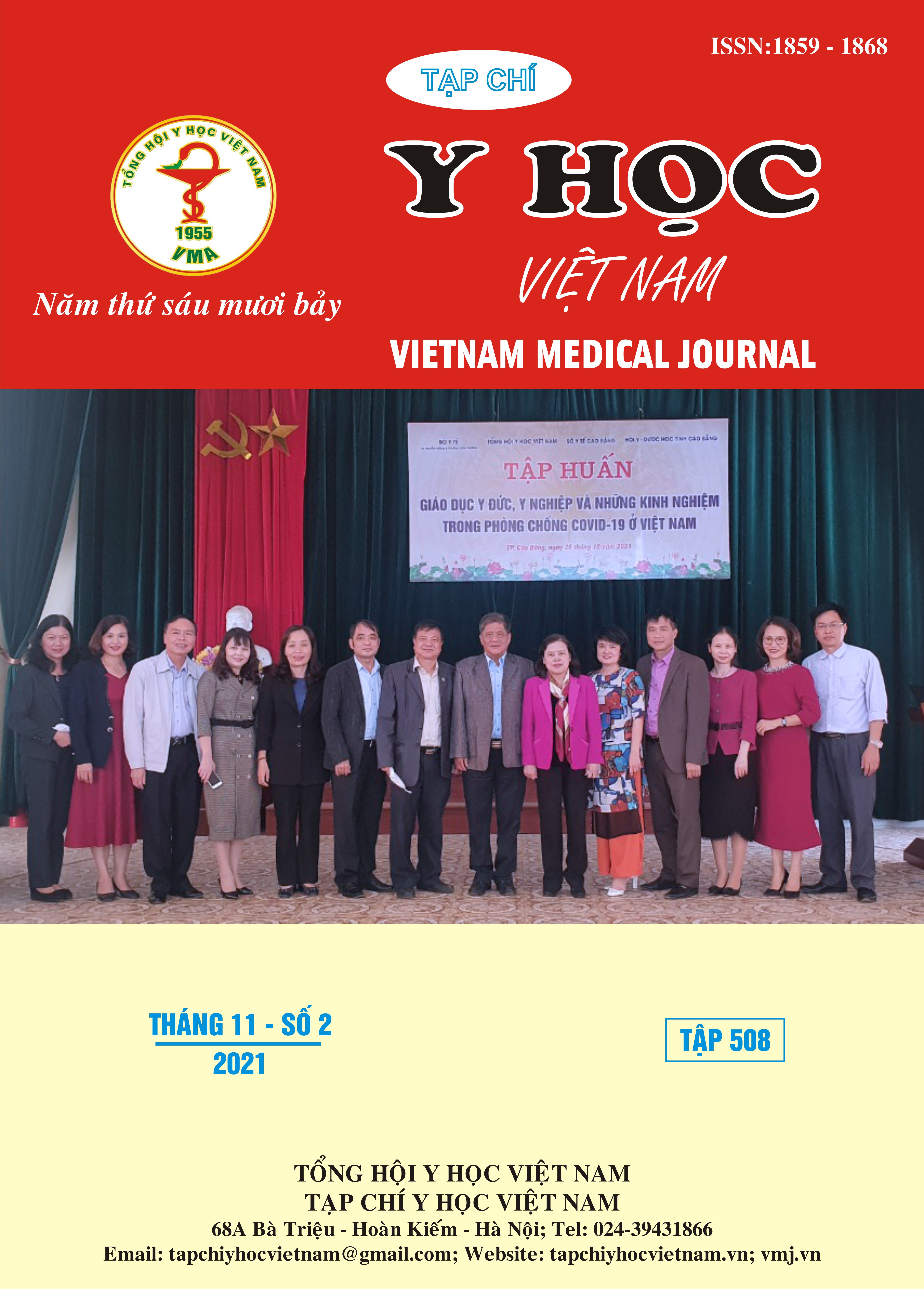STRESS AMONG MEDICAL WORKERS IN SOME HOSPITALS TREATING COVID-19 PATIENTS IN HO CHI MINH CITY
Main Article Content
Abstract
Background: Medical workers are directly exposed to high levels of negative emotions that appear to increase the risk of long-term consequences such as secondary stress, depressive symptoms or burnout occupation with adverse outcomes for health care quality. Objectives: To assess the stress level of medical workers and its related factors at some hospitals treating COVID-19 patients in Ho Chi Minh City in 2021. Methods: A cross sectional study was conducted on 244 medical workers in 12 hospitals and frontline medical units treating COVID-19 patients in Ho Chi Minh City from September 13 to 20, 2021. Using the stress component of the 21-item Depression, Anxiety and Stress Scale (DASS-21) to assess the level of stress among healthcare workers. Results: A total of 244 medical workers, 80.3% experienced stress. The prevalence of stress was found to be in the range of mild (17.6%), moderate (22.5%), severe (29.7%), of extremely severe (12.3%). Multivariable logistic regression model showed that directly treating COVID-19 patients (OR=2.14, 95%CI: 1.01 - 4.53; p<0.05) and often under pressure from superiors at work (OR = 7.05; 95%CI: 1.55 - 31.9; p<0.05) were associated with stress. Conclusion: The prevalence of stress among medical workers was very high. It is necessary to reduce working time and strengthen special policies to ensure the highest level of safety in hospital environment, especially paying more attention to medical workers who having direct contact with COVID-19 patients during treatment.
Article Details
Keywords
Stress, medical workers, COVID-19, Ho Chi Minh city
References
2. Bộ Y tế (2021), Quyết định số 2057/QĐ-BYT ngày 14 tháng 5 năm 2020 của Bộ Y tế về việc ban hành tài liệu chuyên môn Hướng dẫn chăm sóc sức khỏe tâm thần trong dịch COVID-19, chủ biên, Hà Nội.
3. Thanh, N.T., Thanh, L.X.T., Thi, N.N.T. et al. (2021), "Psychosocial Impacts of COVID-19 on Healthcare Workers During the Nationwide Partial Lockdown in Vietnam in April 2020", Frontiers in psychiatry. 12.
4. Chan, A.O. và Huak, C.Y. (2004), "Psychological impact of the 2003 severe acute respiratory syndrome outbreak on health care workers in a medium size regional general hospital in Singapore", Occupational medicine. 54(3), tr. 190-196.
5. Conversano, C., Marchi, L. và Miniati, M. (2020), "Psychological distress among healthcare professionals involved in the covid-19 emergency: vulnerability and resilience factors", Clinical Neuropsychiatry. 17(2).
6. Lovibond, S. và Lovibond, P. (1995), "Manual for the depression anxiety stress scales. 2nd edn. Sydney: Psychology Foundation, 1995", Google Scholar, tr. 4-42.
7. Nhan, N., Dinh, L.D., Colebunders, R. et al. (2021), "Stress and associated factors among frontline healthcare workers in the COVID-19 epicenter of Da Nang city, Vietnam", Research Square(Version 1), tr. 1-12.
8. Yan, H., Ding, Y. và Guo, W. (2021), "Mental Health of Medical Staff During the Coronavirus Disease 2019 Pandemic: A Systematic Review and Meta-Analysis", Psychosomatic Medicine. 83(4), tr. 387-396.


